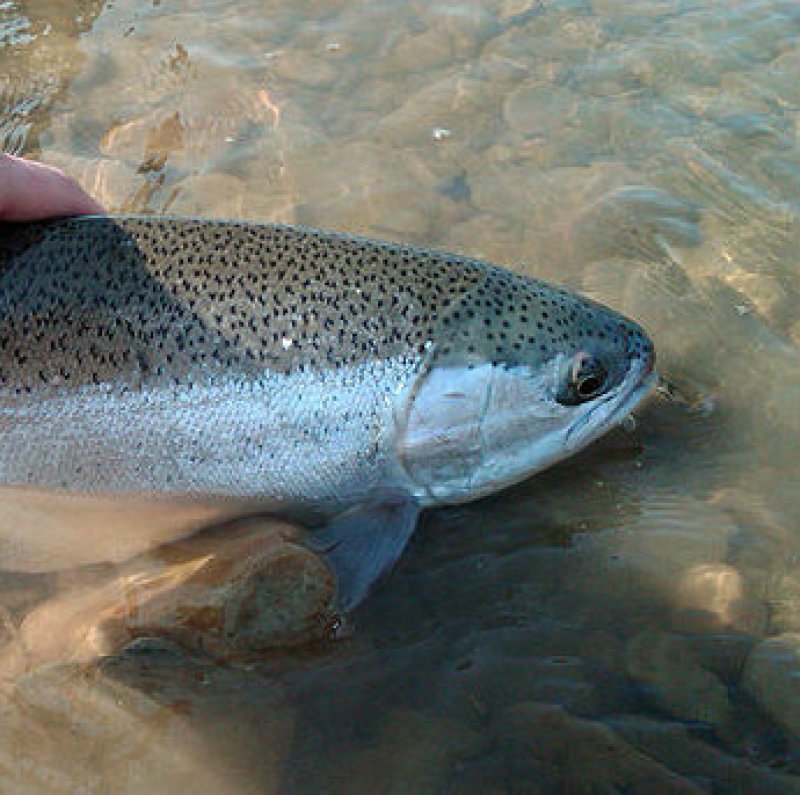The GLP aggregated and excerpted this blog/article to reflect the diversity of news, opinion and analysis.
Researchers with Oregon State University in conjunction with the Oregon Department of Fisheries and Wildlife have found that fish (or, at least, steelhead trout) experience rapid DNA changes when raised in hatcheries rather than the wild. These changes are an adaption to the new environment that enable them to survive; the findings settle the ongoing debate about whether such rapid adaptions do, in fact, take place.
It only takes one generation from wild to hatchery for steelhead trout to show changes at the DNA level, according to researchers. More than 700 genes showed changes across that single generation, the study found, with those changes being passed on to offspring. Some of the genetics changes were pinpointed, while other traits remain a mystery at this point.
Genes that deal with things like wound healing, metabolism, and immunity showed changes, something that isn’t surprising given the conditions of a hatchery. Unlike their wild counterparts, these farmed trout are raised in very large drums of water packed full of other fish, making for a very crowded environment in which food is provided rather than hunted and where there’s little room for isolation.
. . . .
Said OSU College of Science Professor Michael Blouin: “We expected hatcheries to have a genetic impact. However, the large amount of change we observed at the DNA level was really amazing. This was a surprising result.”
. . . .
Raising fish in large hatcheries isn’t the only way a genetically altered fish may end up in your plate. In November, the FDA approved the sale of genetically modified salmon for human consumption, saying it found no issues with the meat.
Read full, original post: Study finds rapid DNA changes in hatchery-raised trout































